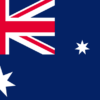What is at stake here, absent any hyperbole, is the very existence of a free press, writes Danny Sjursen.
Category: Censorship
ASSANGE EXTRADITION: Debunking the Smear About Assange Recklessly Publishing Unredacted Documents
ASSANGE EXTRADITION: Support for Assange Mounts as Hearing Nears
Anti-Semitism Threats Will Keep Destroying Labour Party
Jonathan Cook says the fear of being smeared helped the Blairite wing gain control and will lead, as intended, to political and economic timidity from the next leader.
State-Backed Alliance for Securing Democracy Smears The Grayzone
The online censorship initiative depicted critical reporting about the Iowa caucuses as part of a Russian plot, Alex Rubinstein reports. Independent reporter Jordan Chariton was also targeted.
New Leaks Shatter OPCW’s Attacks on Douma Whistleblowers
Aaron Maté reports on new evidence of distortions in the OPCW inquiry as well as a campaign of intimidation against internal dissent.
HuffPost UK Editor Works with Censorship Program
Amid Jess Brammar’s collaboration with the British Ministry of Defence, Ben Norton delves into the smears she has been running against dissenting academics.
Three Extraordinary Australian Journalists: Burchett, Pilger & Assange
Nobody Sets Out To Become A War Propagandist. It Just Sort Of Happens
Caitlin Johnstone confronts a UK editor’s concerted effort to de-platform a group of academics and independent journalists.




